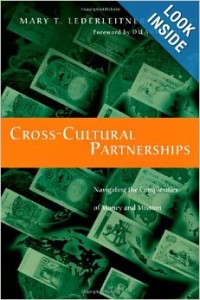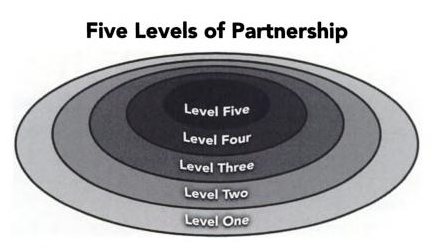 Unprecedented numbers of Christian missions agencies, churches, organizations, and individuals are seeking to broaden and deepen their work through partnerships with non-Western nationals. Cross-cultural partnerships have many advantages but they can give rise to a perplexing number of challenges. While definitely not a new trend, this emphasis on multicultural teamwork is a rapidly growing one, and there is sufficient history to demonstrate some of the challenges in these cross-cultural partnerships. One of the greatest areas of conflict revolves around finances. In this book, Mary Lederleitner, a cross-cultural consultant at Wycliffe, tackles some of the common issues regarding finances in partnerships.
Unprecedented numbers of Christian missions agencies, churches, organizations, and individuals are seeking to broaden and deepen their work through partnerships with non-Western nationals. Cross-cultural partnerships have many advantages but they can give rise to a perplexing number of challenges. While definitely not a new trend, this emphasis on multicultural teamwork is a rapidly growing one, and there is sufficient history to demonstrate some of the challenges in these cross-cultural partnerships. One of the greatest areas of conflict revolves around finances. In this book, Mary Lederleitner, a cross-cultural consultant at Wycliffe, tackles some of the common issues regarding finances in partnerships.
Money is a key element of mission work. Without funding, missions agencies would cease to exist. The proper use of money (and the sometimes laborious accounting for that money) is essential in stewardship and compliance. The author discusses many aspects involving money and how each of them are perceived in different cultures. For instance, she addresses the differences that Western and non-Western partners have in relation to ideas about collectivism, lending, and hoarding.
The author speaks to some of the negative attitudes that Westerners can bring to partnership, such as negative attribution of motives, quick judgments, and paternalism. She mentions how distance, lack of contact, and cultural nuances can cause us to assume the worst in the other person. She presents proactive ways to change these attitudes
Accountability is key in handling ministry funds to prevent fraud, to ensure proper allocation of donor restricted funds, and to enable proper record keeping. Too often, the financial reports from non-Western partners are inadequate or absent. Additionally, the constant requests for reports from western colleagues can damage relationships as it undermines trust, which is key in any partnership. The author gives examples of ways to contextualize accountability and fraud prevention to work together to ensure proper use of funds without damaging the relationship.
This book would be beneficial to missionaries, managers at multi-national missions organizations, financial staff supporting national partners, and church leaders or others seeking to fund the work of nationals. Many readers with missions experience will resonate with the examples given as they think of their own similar experiences. For a broader view of cross cultural issues, read Cross-Cultural Connections by Duane Elmer.
